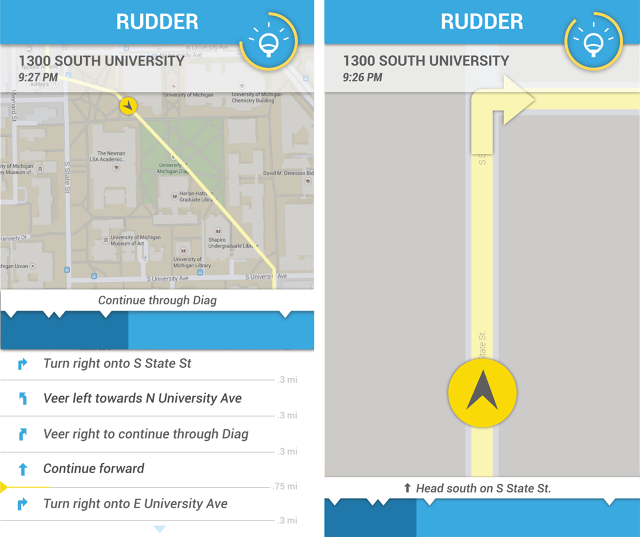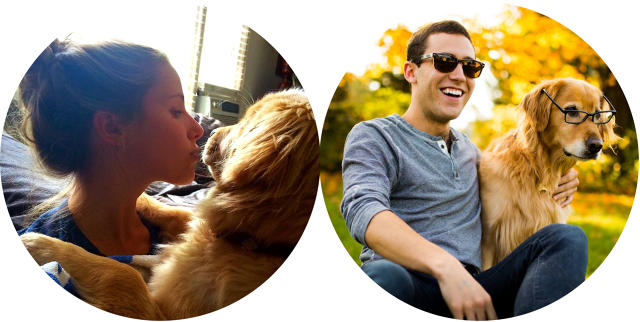A 2007 campus sexual assault study by the U.S. Department of Justice found that one in five female college students is the target of an attempted or completed sexual assault.
Needless to say, on campuses all around the country, it's not particularly safe to go walking alone in the dark. With that in mind, Rudder is a new app from two University of Michigan graduates that aims to make sure that no college freshman—or, for that matter, anyone—ever has to walk alone through the dark again. How? By showing them the best-lit route.

Rudder works like any other mapping app on your smartphone, with an emphasis on walking directions. The biggest difference is the algorithm behind the scenes, where instead of calculating the shortest path between two points, Rudder figures out the shortest and best-lit path between two points, by comparing routes to a database containing information about a given city's public light data. The app will never take you more than five to eight minutes out of your way, and it even taps into your smartphone's camera to give users a built-in light meter, letting them know how well lit your environment really is.
According to designer Hannah Dow, Rudder is targeting colleges first not just because she and her lead programmer, Steve Coffey, recently graduated, but because campuses are such a natural place to start. "Young students often have a hard time getting their bearings," she says. "They might be new to that city, and have to try to find their way between all these different buildings. We're hoping that students will use our app not just to help them get to know their environments, but to make smarter decisions about where they are walking, especially at night."
Even outside of its core functionality, Rudder is bringing attention to this growing problem of campus attacks, which hasn't been addressed with much urgency. Accurate campus crime rates are hard to come by. Colleges infamously underreport them to protect their reputations, especially in the case of sexual assault, and that means the available statistics are woefully inaccurate.

But beyond college campuses, Dow argues there's a need for an app like Rudder. "The experience of traveling at night is just completely different than during the day," she tells me. "It's harder to see, and even if you know where you're going, it's easier to miss landmarks and street signs at night." Yet beyond a token "night mode" that, at best, might make an app easier to read in the dark, most navigation apps don't account for any of this.
And rudder isn't just an app for people who are worried about being attacked in the dark. My wife, for example, has partially detached retinas that make it very difficult for her to walk home alone at night. Rudder could change that.
Right now, Rudder has collected street lighting data from 11 cities: Ann Arbor, Chicago, Paris, Boston, Seattle, Portland, Austin, Vancouver, San Francisco, Chicago, and more. And while the initial beta will include only navigation and light meter functionality, features that the Rudder team hopes to include in the future is the ability to adjust your route to favor speed over lighting, or share travel progress with friends or family members to let them know where you are.
Rudder is expected to launch on the iOS App Store the first week of May. You can sign up to join the beta here.